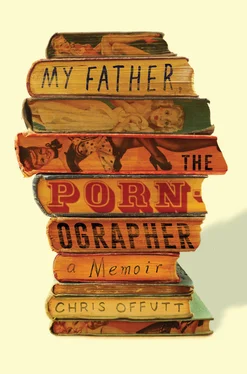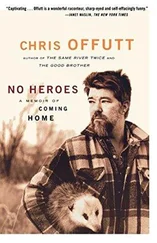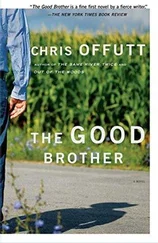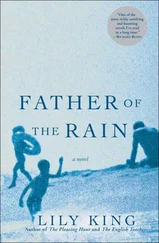Three days after Dad died, the family convened at the house. The first action each of us took, unplanned and spontaneous, was to slam the back door and stomp around the house — activities forbidden to us, reserved only for Dad. Then we laughed like maniacs, four middle-aged adults at last allowed to behave like children in our own home. My siblings stayed twelve miles away at a motel by the interstate. This was traditional — none of us slept in the house when we visited. The extra expense was worth the emotional safety. Dad never made us feel welcome and didn’t care for the presence of grandchildren. He treated them the same way he’d treated us as kids — bullying and critical, angry at the breaking of his ever-changing rules about sound, laughter, and talking. An essential difference was that we knew the risks, but our children didn’t.
The last time I took my young sons to Kentucky had ended badly. Dad began his standard browbeating of seven-year-old Sam, who’d left the bathroom door open. I was unable to respond, a failure that chafes me still. Instead of seeing my son as the target, I saw myself as a child — vulnerable and powerless — and it triggered such intense pain that I simply shut down. I lapsed into immobile silence as if frozen in place, my body separate from my mind, my emotions absent. I knew I should intervene on my son’s behalf, but the child part of me was still terrified of my father’s rage.
Rita, my wife at the time, had no such inner darkness. She came to me and said: “We have to go.” Within fifteen minutes we packed our suitcases, made our stiff farewells, and drove to town. We didn’t return to Kentucky for several years, a decision that was very painful for my mother. She’d saved all our toys for the grandchildren to play with on future visits — LEGOs, blocks, dollhouses, soldiers, and more than twenty board games. Three times she asked me to send my boys to her home by themselves. I refused without telling her the reason: I didn’t want them to endure their grandfather’s emotional abuse.
In my twenties and thirties, I called home often. Mom always answered and, after a brief conversation, put my father on the line. For a long time I thought she didn’t like speaking to me. Later I learned that if she talked too long, Dad would get mad. When they added an extension for the second floor, Dad eavesdropped until he voiced a disagreement. At times they began their own conversation. I would listen, imagining them in different rooms of the house, talking on the phone. Now I was eavesdropping. Twice I gently hung up the phone, wondering how long they’d continue until noticing I wasn’t there.
Over the years I came to dread three days per year that necessitated phone calls to my folks: Christmas, Dad’s birthday, and Father’s Day. A gnawing anxiety began two or three weeks before each holiday. I thought about the problem from various angles, foremost when to actually dial the number. As with everything in Dad’s life, there were staunch rules regarding the phone. No calls in the morning or afternoon or during meals. Calling between five o’clock and six o’clock was acceptable, except Dad usually hadn’t had a drink yet, which meant he’d be impatient, prone to anger. Six to seven was out due to supper. Calling between seven and eight was optimal — unless the Reds were on TV. Later was no good, because after a few drinks Dad rattled on nonstop, his slurred speech veering into the maudlin, his mood volatile.
I latched on to the idea of calling promptly at seven o’clock on the three days per year when I felt obligated to communicate with my father. Unfortunately, the line was often busy because my siblings had deduced the same ideal time. Despite Dad’s claim of disliking the phone, he was a lonely man who enjoyed talking. If I said I needed to go, he’d simply launch into a new subject and orate for several minutes. We didn’t really converse; I listened. Dad often threw verbal bait into the water — usually an opinion he knew I didn’t share — seeking a disagreement, which for many years I snatched like a starving fish, eager for conversation even if it was a debate that ended in anger. Over time, I learned to recognize and ignore those traps. After a brief pause, he’d begin a monologue on a new subject. Never did he inquire about my wife, my sons, or me.
The only way I could get through these telephone calls was by having a drink first, then replenishing as Dad talked. Afterward, instead of merely feeling bad, I’d be drunk and feeling bad. I tried a new tactic — right after Dad answered, I informed him that I had to be somewhere in twenty minutes, but I wanted to call since it was Father’s Day. I successfully employed this strategy for fifteen years.
When my work started getting published, Dad told me how he dealt with editors, a group of people he loathed. He’d make a list of subjects he wanted to address, then anticipate an editor’s reactions and generate his own written responses. This way, no matter what an editor said on the phone, Dad was prepared and could not be taken by surprise. He applied the same pattern to family calls, building a scene in his head and behaving within his self-assigned role. The drawback came when family members lacked insight into his pre-scripted conversations. If someone didn’t respond the way he’d imagined, Dad’s frustration could easily escalate into anger.
One Christmas Dad sent me a hundred-dollar bill. It was the second time he’d ever given me cash, the first being forty bucks when I left home. A hundred dollars was a pleasant surprise. Previous Christmas gifts had included his discarded undershirts with stains in the armpits.
Reluctantly, I made the holiday phone call. Dad answered. By this time his phone had caller ID. He answered gruffly, without preamble or greeting. “Why’d you call, Chris?” he said.
“Uh, because it’s Christmas.”
“I know what day it is. I mean why did you call me?”
“To say ‘Merry Christmas.’ ”
A long silence. I had no idea how to proceed.
“Are you there?” he said.
“Yes.”
“Don’t you have anything to say to me?”
“Sure, Dad. Merry Christmas. Hope it’s a good one.”
“You’re not letting me say what I want to say.”
Another long silence, which I broke. “I don’t know what you want to say, Dad. But I’m listening.”
“No, you’re talking. Saying you’re listening is talking.”
“Well, that’s why I called, just to talk.”
The conversation descended into a tense silence. Dad finally told me that he’d planned his response to my thanking him for the money he’d sent. But I must have known that, since I was deliberately thwarting him.
“Thanks for the money,” I said.
“What money?”
I didn’t speak, unsure what my side of the pre-scripted conversation was supposed to be.
He spoke into the silence. “I said, ‘What money?’ Chris.”
“The hundred dollars. I appreciate it.”
“What hundred dollars? Did I send you money?” He started laughing.
“Dad, is that what you wanted to say?”
“Yes.”
“Okay,” I said. “I have to go now.”
Later, Mom called to talk with my sons, then put Dad on the phone. James was in middle school. During the conversation he lowered his voice and began giving me quick furtive glances. Afterward he told me that his grandfather had talked to him about Internet pornography, saying that porn fueled all technology and that James was lucky it was available to him online. I told James that scientific research fueled technology, not porn.
For the memorial service, Mom chose Friday afternoon at a local funeral home. Since the family hadn’t paid for a fancy container, a table held an empty wooden box that represented his ashes. The box contained nothing, a fitting metaphor for a man who didn’t allow himself to be known. No one from his family attended the service.
Читать дальше












